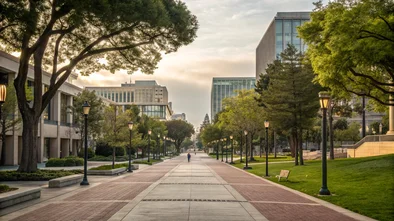Going to university in South Africa is an exciting and life-changing journey. But one of the most important questions every prospective student and their family ask is: How much does it actually cost to be a university student here?
Understanding the full picture of university expenses can help you plan better, budget wisely, and avoid surprises. In this post, I’ll break down the real costs of university life in South Africa — from tuition fees to accommodation, books, transport, and everyday living expenses.
1. Tuition Fees: The Biggest Expense
The first and most obvious cost is tuition fees. These are the fees universities charge for your academic studies, and they vary widely depending on the institution, course, and level of study.
Average Tuition Fees per Year
-
Public universities: In 2025, tuition fees for undergraduate students at most South African public universities range between R30,000 to R60,000 per year.
-
Prestigious or specialized courses: Fees for degrees in medicine, engineering, or law tend to be higher, sometimes reaching R70,000 to R90,000 or more annually.
-
Private universities: These usually charge more, often between R60,000 and R120,000 per year, depending on the program.
Note: Many students get financial aid from NSFAS (National Student Financial Aid Scheme) or scholarships, which can reduce this cost substantially.
2. Registration and Other Administrative Fees
Besides tuition, universities charge additional compulsory fees:
-
Registration fee: Typically between R1,000 and R3,000 per year.
-
Examination fees: Some universities include these in tuition, others charge separately, around R500 to R2,000.
-
Library, laboratory, and facility fees: Depending on your course, you may pay extra for access to labs or equipment. This can range from R1,000 to R5,000 annually.
-
Student services fees: Covers counseling, student organizations, campus security, etc. Usually around R500 to R2,000.
Total additional fees: Roughly R3,000 to R10,000 annually.
3. Accommodation Costs: Residence or Renting?
For many students, accommodation is the second biggest cost after tuition.
On-Campus Residences
University residences offer convenience but vary in price:
-
University-owned residence: Fees generally range between R30,000 and R60,000 per academic year (including meals in some cases).
-
Private student residences: Tend to be more expensive, typically from R50,000 to R90,000 per year, often with more amenities.
Residences usually operate on a semester or academic year basis, so students pay for the months they stay, typically excluding vacation periods.
Off-Campus Renting
Students living off-campus may rent rooms or share flats/apartments:
-
Rent for a room in a shared house/flat: Around R2,000 to R5,000 per month depending on the city and proximity to campus.
-
Rent for a full flat: Can go from R4,000 to R10,000+ per month.
For a 9-10 month academic year, budget roughly R18,000 to R90,000 for off-campus accommodation.
4. Food and Meals
Whether in residence or renting, food costs are a significant monthly expense.
-
Meal plans in residences: May be included in accommodation fees or cost about R1,500 to R3,000 per month.
-
Groceries and cooking own meals: Expect to spend about R1,500 to R3,500 per month depending on lifestyle and location.
-
Eating out: Eating on campus or outside can cost anywhere from R30 to R100 per meal, so frequent dining out adds up quickly.
On average, students spend R2,000 to R4,000 monthly on food.
5. Books, Stationery, and Study Materials
Textbooks and study materials are often overlooked but important expenses.
-
Textbooks: Can cost anywhere from R1,000 to R6,000 per year, especially for science or medical courses where specialized books are needed.
-
Stationery and printing: Around R500 to R1,000 per year.
-
Digital resources and software: Some courses require subscriptions or software licenses costing R500 to R2,000 annually.
6. Transport Costs
Transport expenses depend on whether you live on or off-campus and your daily commute.
-
Living on campus: Transport costs may be minimal, perhaps just occasional trips home.
-
Living off-campus: Budget around R1,000 to R3,000 per month for daily travel using taxis, buses, or public transport.
-
Owning a car: This adds fuel, maintenance, insurance, and parking costs, easily exceeding R2,000 to R5,000 per month.
7. Personal and Miscellaneous Expenses
Don’t forget day-to-day living costs and personal spending:
-
Mobile phone airtime and data: R300 to R700 per month.
-
Clothing, toiletries, and personal care: About R500 to R1,500 monthly.
-
Social activities, entertainment, and outings: Around R500 to R2,000 monthly.
-
Health insurance or medical aid (if not covered by family): Can be R200 to R1,000+ monthly.
8. Summary: Estimated Annual Costs for a South African University Student
| Expense Category | Low Estimate (R) | High Estimate (R) |
|---|---|---|
| Tuition fees | 30,000 | 90,000 |
| Registration & admin fees | 3,000 | 10,000 |
| Accommodation (on-campus) | 30,000 | 60,000 |
| Accommodation (off-campus) | 18,000 | 90,000 |
| Food & meals | 24,000 | 48,000 |
| Books & study materials | 1,500 | 8,000 |
| Transport | 12,000 | 36,000 |
| Personal & miscellaneous | 9,600 | 28,800 |
9. Tips to Manage and Reduce Costs
-
Apply for NSFAS or scholarships to cover tuition and accommodation.
-
Consider living in university residences for cost-effectiveness.
-
Cook your own meals rather than eating out.
-
Buy used textbooks or borrow from libraries.
-
Use public transport or carpool to save on transport.
-
Create a monthly budget and track spending.
Final Thoughts
Being a university student in South Africa comes with various expenses that can add up quickly. On average, a full-time student can expect to spend between R80,000 and R200,000 per year depending on lifestyle, course, and location.
Planning ahead, budgeting carefully, and seeking financial aid are crucial steps to ensure you can focus on your studies without the stress of money worries. If you’re thinking about university, start researching costs early and explore funding options to make your academic dream a reality.



